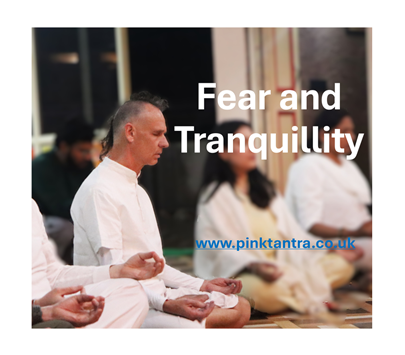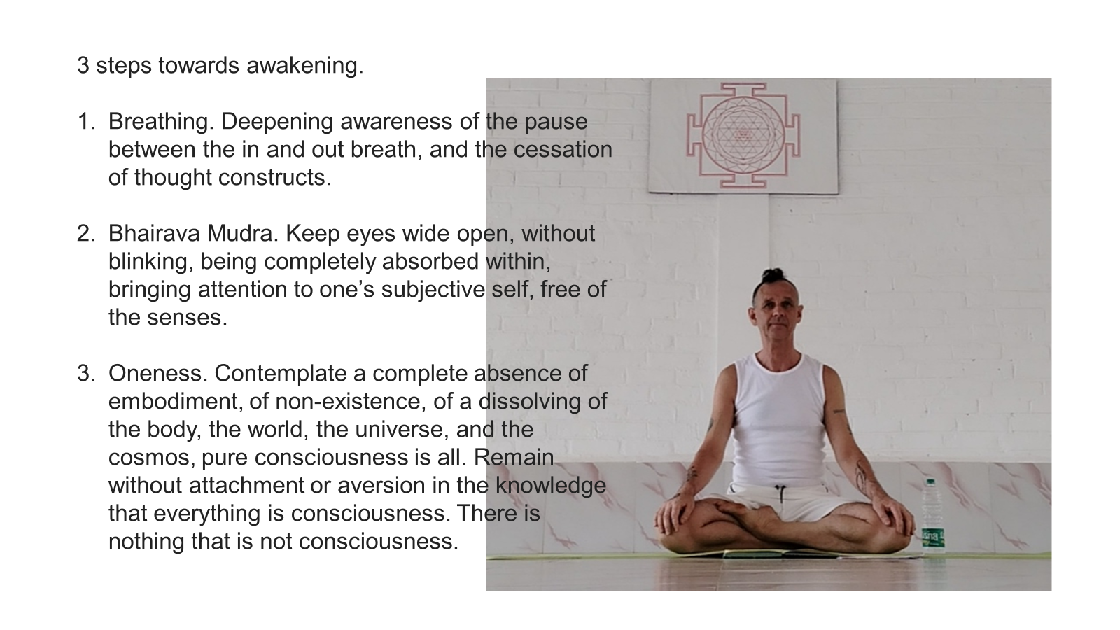Spiritual Enquiry
Spiritual growth and wellbeing pathway
In classical Tantra and Yogic tradition self-enquiry plays a fundamental role. It has always been a part of the tantra yoga path and refers to the practices around examining the true nature of the self, usually starting with the question Who Am I? This is an essential part of the cleansing process where we let go of our limiting beliefs and illusions of dualistic appearances, when we come to realise there is no solid, inherent self, where we let go of ego-grasping and come to recognise our fully awakened wisdom. When taken into a coaching or group setting this can be seen as a form of spiritual enquiry through a spiritual (transpersonal) model. Here the aspirant / Tantrika / coaching client travels through various stages of enquiry from the story, the feelings, making sense of it (in the mind), to an embodied felt-sense, and an integration of deeper wisdom, where we bring awareness to that which is beyond words. The Path offered through Pink Tantra Towards Awakening is in line with the three stages of The Shiva Sutras and The Yoga Sutras, including self-enquiry in relation to (1) personality and behavioural coaching, (2) mindful spiritual enquiry, and (3) deepening self-enquiry where we come to reach samadhi. Stage one (working to raise self-awareness):Coaching is about supporting you, the client / spiritual aspirant, to develop and grow. This might be related to a specific theme or set of beliefs that are no longer serving you in your life or journey. Clients / spiritual aspirants might be dealing with themes such as: · Confidence building. · Feeling stuck in your life or journey. · Identity issues. · Asking for what you want. · Saying no and knowing your boundaries. Coaching is therefore based on the 'here and now', where the coach helps facilitate your learning. Coaching can transform your relationships to yourself and to others. Through the sessions we are likely to clarify your value base, key priorities and likely barriers, to take right action to address the identified issues and barriers.
Stage two (working to come into harmony with the universe):Mindfulness Spiritual Enquiry is about how we relate to our self, others, our past and how we bring that past into the here and now, for better mastery of the self for a better present and future. It might be that the coach can call on breathing, relaxation or introductory meditative techniques to help clients manage stress, reduce anxiety or build confidence in the moment. These techniques we know can contribute to a reshaped or reframed perspective, which can then have a knock on effect and benefit in aiding attention, decision making and improved wellbeing over time. One of the key points here is that mindfulness is about staying connected with the present (in the moment).
Stage three (working to step beyond the mind into oneness):Meditative Self-Enquiry is scrutiny of oneself. It is perceived as a form of devotion to the divine within you. It is also a form of Jnana Yoga (knowledge of oneself). It is the route to self-realisation through gaining self-awareness and eliminating self-ignorance. This is where we question ‘I’ and ‘I AM’ and all limiting self-identifications to eliminate our ‘I-thoughts’. Here we might use Dharana (concentration, one-pointedness) where there is no awareness of anything other than the object of perception (practices such as Trataka and Shambavi Mudra are good for developing one-pointed concentration) progressing to Dhyana (where dharana becomes uninterrupted, continuous).
For full pricing list, press here.
|
Please read Pink Tantra's Ethical Statement |


 DISC (personality profiling / psychometrics) is a great tool as a starting point to open up self-enquiry to shift beyond the monkey mind, boost self-perception and change behaviour. The emphasis is on asking how we want to live our life, what does right action mean for us, and how do we go about living them to find a balance between all the various aspects that at times seem to crowd our thinking, releasing us from our default habitual modes of behaviour. Symbolically we move from the monkey mind to the higher mind as portrayed by Hanuman, the divine monkey who shows courage, loyalty, strength and selfless action.
DISC (personality profiling / psychometrics) is a great tool as a starting point to open up self-enquiry to shift beyond the monkey mind, boost self-perception and change behaviour. The emphasis is on asking how we want to live our life, what does right action mean for us, and how do we go about living them to find a balance between all the various aspects that at times seem to crowd our thinking, releasing us from our default habitual modes of behaviour. Symbolically we move from the monkey mind to the higher mind as portrayed by Hanuman, the divine monkey who shows courage, loyalty, strength and selfless action.
